Many businesses struggled throughout the epidemic, and while some were forced to close their doors permanently, others were able to effectively traverse these turbulent times by pivoting their product and service offerings to adapt and grow. Many business owners had to take a radical new approach, figuring out how to fast adjust in order to confront the pandemic’s issues head-on. In this interview series, we spoke with 26 business owners and executives from all over the world to see how some of the country’s most successful entrepreneurs and leaders overcome challenges during the pandemic.
INTERVIEW HOST
Hello, my name is Jerome Knyszewski, I’ll be the host of your interview today. I am the CEO of HeavyShift. My specialties are online reputation marketing and SEO. Looking forward to reading your insightful answers and publishing your featured interview.

Table of Contents
The question we asked:
The pandemic encouraged many businesses to pivot and adapt to changing market conditions. How did you adapt? Did you introduce additional product lines or services?

Yeremia Poco
As a small online business that offers animated commercials, when the pandemic hit, almost all of our clients dropped their projects. They are hesitant to spend money on an unpredictable future, and a lot of businesses are in ‘wait and see’ mode.
We had to rack our brains looking for a quick solution, and we decided to offer smaller/cheaper services to lure the market. Thankfully, with lower entry points, businesses are willing to invest in our service again. This strategy worked for us, at least for a year. When the market slowly went back to normal, we went back to our normal pricing at the end of 2021 – now.
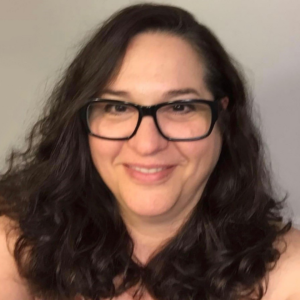
Maria Alfano
Our business was always online, so pivoting was not difficult. What became challenging was finding a product that customers needed or wanted during the pandemic. We all know about the toilet paper shortage at the start of the pandemic. Suddenly, there were thousands of people rushing to sell essentials like toilet paper, soaps, and masks.
We headed in a slightly different direction. If you are going to make it in business, you need to lead, not follow. Our focus became one of helping others adjust to a life restricted to their home environment. We decided to help them make their space more inviting, more comfortable, and more appealing.
We launched several new products that would help their home bathroom give them the feeling of being at the spa. Those folks that were accustomed to enjoying a spa day could now enjoy it in the comfort of their own homes. The pandemic put enough stress on mental health, so we thought our new products would give them a way to relieve some of that stress and give them a little sense of peace.
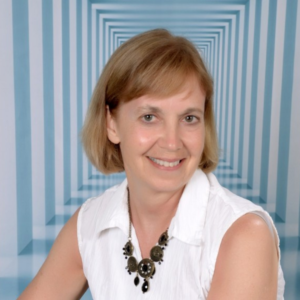
Julie Stobbe
The pandemic gave me time at my desk. I work in clients’ homes, working 40 hours a week at my desk was my first pivot. Sitting at a desk for extended periods was a big change from the physically active work of decluttering and organizing homes.
I built into my new schedule transitions to help me mentally prepare for starting work, lunch breaks and leaving the workday behind. I had some products and services that had not been marketed well and a product I had wanted to develop an online course. Being able to pivot and focus solely on these 2 areas of my business let me grow my services as well as my skills.
I built another website to host my new courses, Create an Organized Home. A step-by-step course with videos, worksheets and resources to guide a person to create a home to suit their personality and lifestyle. This new website solved the other problem, marketing existing services.
Now I had a platform for my 9-week coaching course From Clutter to Freedom. The new website meant I had an easy link to use on social media for marketing and blogging.
The pandemic forced a mindset change, you needed the ability to see an opportunity to do something new and take the risk instead of looking at the opportunities you no longer had available.

Anthony King
Last year, we completely modified our ways and implemented new practices that could assist our organization, which was an unexpected turn of events.
The switch from working in an office to working from home was the most significant change. It completely altered our approaches to problems, but it also resulted in conflicts and miscommunication.
My team was having a hard time adapting to this mode since it generated some communication barriers that could be readily overcome with face-to-face contact but were difficult to overcome remotely. When it comes to managing remote teams, I believe the major challenge is a lack of open communication and trust.
Because face-to-face communication is always a better approach to addressing problems quickly, the remote work made it difficult for us to grasp the problems everyone was experiencing at work. We gradually adjusted to this by adopting changes such as weekly meetings, feedback surveys, and flexible hours to help my team operate more efficiently and successfully.
We have started communicating openly with each other and responding quickly if an inconvenience arises. I’m extremely proud of how wonderfully everything came together, and we’re really pleased with how things turned out.

Kevin Mercier
Re-Engaging With Customers During the pandemic, it was vital for us to re-engage with our customers. As a result of the pandemic, the needs and wants of our customers had altered. For this reason, they had moved to a different stage in our sales pipeline compared to before.
Using our CRM, we targeted specific groups of customers that had fallen out of line with our business during this pandemic. We decided to focus more on building relationships with customers by keeping them updated and informed or by providing them with various resources.
Remaining in touch with your customers is an aspect that should never be overlooked, especially when there are little to no opportunities for individuals to visit the physical location of your business.
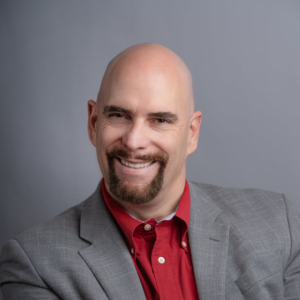
Mark Leslie
As a book industry consultant and writer/storyteller/publisher, I did a couple of things to re-adapt to the changing market conditions. Prior to the pandemic, I flew to a lot of conferences in North America, Europe, and the UK in order to talk about the business of writing and publishing.
With air travel and border crossings reduced, not to mention conferences being canceled or moved to online venues, I adjusted the means by which I can deliver the same value. I purchased better equipment for video and audio settings to engage in more powerful virtual presentations, and took the time to get certified as a virtual presenter with eSpeakers, one of the sites where I’m listed as a professional speaker.
I can now say yes to more speaking opportunities that are conducted virtually, because, from my home office, I may be able to fit in three or more different speaking engagements in a single weekend, whereas, in the previous physical-only scenario requiring travel, I’d have to fly across the country and be there for a single event.
The cost to the organizers is reduced significantly (they don’t have to pay to fly me and put me up in a hotel, for example), and I am able to satisfy more requests in a smaller time frame.
On the more creative storyteller side of my business, I doubled-down on my output of creative content on various social media platforms such as YouTube, Instagram, and TikTok to remain engaged with my readers and as a way to find new readers who found my content engaging and entertaining.
Prior to the pandemic, this type of engagement would happen at in person events, book signings and other related physical-world venues. My reduction in travel also allowed me more time and opportunity to produce more traditional content, and in 2020 and 2021, I released 15 books that I authored/edited, or co-authored in various formats (eBook, trade paperback, hardcover, audiobook). That’s not to mention the books that I released for other authors under my Stark Publishing imprint.
One significant shift to the book industry — and this was especially true near the beginning, in early to mid 2020, was that the growth of digital eBooks and audiobooks was the largest it has ever been since the original eBook boom between 2010 and 2015.
And that industry is only continuing to grow, leveraged more strategically by indie authors who are dominating a space that has been mostly ignored by the major publishers who are more interested in the business of shipping dead trees around through warehouses and bricks and mortar bookstores.
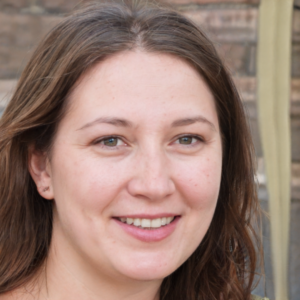
Jessica Kats
This was a very distressing time for us. But, we were luckily able to adapt to it by introducing remote learning. Through tools such as Zoom, Slack, and Trello, we were able to handle remote work very well.
Although there were some communication difficulties initially, we pushed through and came back stronger. I had regular video meetings with my team to ensure that we were all on the same page.
Additionally, creating a work schedule on Trello enables the employees to stay on track and be productive. I did not introduce any additional products. That’s because our main goal was to ensure that internal communication within the company was excellent and that all tasks were completed efficiently.
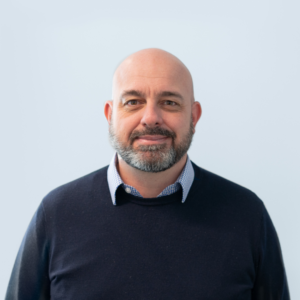
James Cashmore
As a lead generation agency we had to adapt quickly during the pandemic. After about 6 months into the pandemic, B2B businesses realised they weren’t going to make their targets so in response, we introduced a new ‘Pay what you can’ COVID-19 model.
This was something different to really help out businesses who were doing it tough. The clients that came through this process are now our strongest clients. For the day to day aspects of business, the pandemic has allowed me to work more efficiently. Before the pandemic I was traveling a lot e.g. day trips from Melbourne to Sydney for in person meetings.
I would only fit around 3-4 meetings a day and now can schedule in 20-25 meetings per day over video call. We don’t need to be in each other’s offices to get things done – we can work more efficiently using technology.

Elley Hudson
In the pandemic’s early days, I was worried that a large number of our tenants would lose their jobs or get sick, which would leave them unable to pay their rent. Instead of thinking too long and hard on the doom and gloom, we decided to adapt by creating a system that identified and verified tenants who were financially impacted by COVID.
We then contacted the owners of their properties and worked with them to reached mutually agreeable solutions without the need for the tribunal process. Until early January, we were able to keep things in the office relatively smooth.
However, COVID has now spread across Queensland and Townsville is facing the pandemic worse than it ever has before. Our first week back from the Christmas holidays was a particularly chaotic one and made us realise that we need to pivot the way we normally do things.
For example, we’re now trying to encourage less in-person appointments and more over-the-phone interactions. We’re also regularly disinfecting surfaces like desks and phones to minimise germs in our workspace and wearing masks when interacting with members of the community.
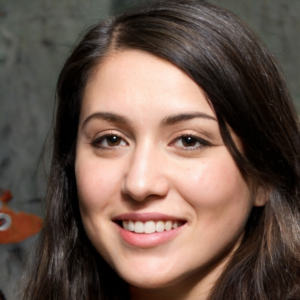
Chara Yadav
How did you adapt? Putting it bluntly, quickly, and painfully. We, or rather I, had to lay off our entire research and content team, abandon our office and outsource most of our business to a marketing agency.
It was a painful transformation, but if we hadn’t made the move from being office-based to using a remote team, my business wouldn’t have served the first twelve months and definitely wouldn’t be here today.
Did you introduce additional product lines or services? No, I stuck to my guns and doubled down on doing what we do best, and I honestly believe that by doing so it helped us to survive and grow in a time when so many other businesses and companies fell by the wayside.
Was it the right decision? It was for me and my business, and at the end of the day, that’s all that really matters.
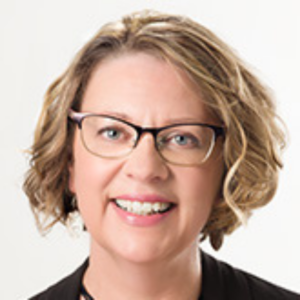
Maureen Farmer
On the heels of COVID-19, we at Westgate quickly panicked, assessed, and then acted. In less than nine months, we turned our business around, grew revenues, and built a sustainable digital business model that has tripled revenues in 18 months while bringing quality clients into the business.
• In April 2020, our global executive branding and career consulting business came to a grinding halt. The phone stopped ringing, and our email inbox became like a ghost town. Our small company of two full-time employees and 10 years of business we built from the ground up seemed to have evaporated overnight. The world seemingly had fallen asleep.
• The clincher? On April 20, a national organization scheduled to sign our contract for a coast-to-coast landmark deal emailed to say the budget had been cut.
They were moving into crisis management mode. Our pipeline was empty, and we needed to make payroll.
• I quickly began to worry that the investments we had made in marketing may be lost over the past 18 months, including a business rebranding that took months to plan and significant financial resources to execute.
• Heavily dependent on referral business, we understood this is not a sustainable business model.
To address this, we needed to get in front of our targeted markets, hone our messaging, and focus on our addressable international markets more effectively, which required a digital marketing strategy.
• Knowing what we needed was only the first step. How would we find the resources we needed from organizations we could trust?
• We needed to act quickly—Westgate works primarily in global markets, but we weren’t 100 percent digital. My team member and I invested days scouring our networks, LinkedIn, and websites looking for digital marketing resources. We spoke to dozens of firms, many of whom promised the world. We interviewed dozens of consultants.
• With an SEO consultant, a veteran marketing firm (more than 50 years in business!), and our focus on core services, we carved out a new niche and developed new products.
• Our 90-day plan has been downloaded nearly 2,000 times, and we remain at the top of the first page of Google for the search, “CEO 90-day plan,” helping us collect names of potential new clients (subscribers) through our email marketing platform.
• And we didn’t stop there.We knew the subscribers would be funneled into our weekly e-blast list, but we took it a step further. We created a process in which we conduct due diligence on every person that downloads our CEO 90-day plan with the help of LinkedIn. We study and analyze our audience to better serve their interests and needs.
• Instead of pulling back on marketing efforts, we ramped up even more. We knew that we wanted to be ready when the world found a new rhythm.
• We built a podcast titled, Get Hired Up! and invested time locating top leaders in multiple industries to further leverage our network and expertise.
• We continued to work with our own business and marketing coach to help us do what we help our clients with: Get crystal clear on our vision and continue to grow our brand, despite the daunting reality of the new world. Instead of foregoing speaking events, we took our E-Level to C-Level seminar online and continued to source future conferences to prepare for when the world opened back up. With this preparation, we are happy to say we are booked to speak at the Career Thought Leaders Symposium in Philadelphia in April of this year.
• Instead of sticking to one stream of business, we decided to branch out in product and audience.
• We built a program that mimics many of the same services in our original Career Navigator Program but is meant for a corporation. Instead of solely helping individuals, we knew we could serve corporations. We are thrilled to introduce our C-Suite Optimization Program.
Finally, instead of letting the tried-and-true assets built over ten years collect digital dust, we are launching an e-commerce store that will serve other career professionals in February of this year.
• In short, how did we adapt? We ramped up, pushed back on our imposter syndrome, and pushed toward an intentional, ambitious, and focused digital marketing strategy serving quality clients.
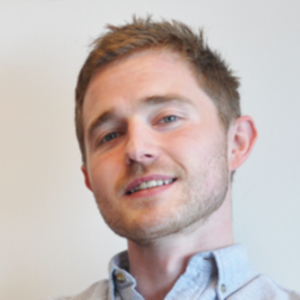
Joe Davies
When the pandemic hit, online services quickly began to see an influx in business and inquiries from companies who were shifting their focus. As an SEO company, we became much busier with potential clients inquiring about our services and comparing offerings from different agencies.
We decided that the ability to offer more packages would be a good idea so we could have something to fit more people’s needs. Some people were looking for more affordable packages, services that fit their specific industry, and different levels of volume.
We tweaked the packages we had to offer, created some new offerings, and even took advice from the people we were chatting with in order to make our services a fit for more people. It’s been an interesting journey and I’m proud of our ability to quickly pivot in order to help more people!
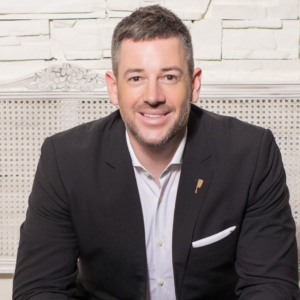
Daniel Tolson
I stopped the bleeding fast! My business traditionally consulted face to face and held physical events, which required physical training manuals. In early 2020 when the borders shut down, we stopped the bleeding fast! We cancelled all live events, stopped purchasing physical training systems and adapted a 90% digital delivery system.
In addition, we scaled our events to live online events with over 1,300+ people in attendance. This was 2.5X the size of our normal audiences. Our psychology also needed to adjust.
Almost overnight we went from having human contact to none, from networking and shaking hands to zoom rooms and reminding people to turn on their microphones, from spending days travelling to minutes walking from our bedroom to the office and delivering training to million dollars businesses wearing polo shorts, underpants and slippers. Work / Life balance disappeared as the office outgrew the home and days being trapped indoors.
It didn’t take weeks to adjust, it took months to adjust and as the borders open again, we are relearning to interact in an environment where people have been relying on technology to communicate their ideas.
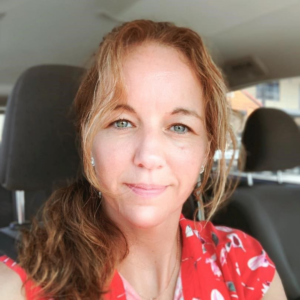
Clare Jones
As I’m sure you can imagine, the COVID-19 pandemic dramatically impacted our revenue due to the sudden drop in demand seen for physical workspaces across the country.
The growth of remote working practices and the introduction of various government mandates led to many businesses abandoning the office in favor of hybrid working models that pivoted between remote and in-office work depending on the situation at the time.
In response to the changing face of the workplace, we worked hard with office providers to highlight the COVID-safe steps being taken by workplaces to keep businesses safe.
In addition, we retooled our website and re-focused our marketing strategy to highlight spaces offering flexible lease terms, customisable amenities, and features unique to physical office space.
By shifting our efforts towards temporary offices and flexible terms, we were able to capitalize on the large number of businesses looking to leave their existing office spaces in favor of a more agile option.
We also pivoted our own working model, opting for a hybrid schedule that allowed for our employees to work both in-person and remotely, depending on their role in the company and personal preference.
This change resulted in higher productivity and lower turnover (relative to the rest of the industry), whilst also saving a substantial amount of money by allowing us to downsize our own office space.
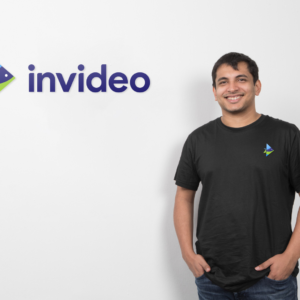
Sanket Shah
The pandemic has been a rough phase for the entire world. InVideo has been a remotely working enterprise since 2017. However, the pandemic forced us to bring specific changes in our product and company operations.
We updated our online video creating tool with more features, templates and elements to suit social media video editing and creation. The pandemic escalated the production of social videos by manifolds. Our marketing strategies vigorously promoted social media video creation and videos for covid-awareness during the pandemic.
As for operational modifications, InVideo granted health support to each employee and leaves were granted to every employee to cope with both health and emotional crises. In addition, special goodies were sent to every employee to cheer up their spirits and online yoga sessions were held three days a week for overall wellness.

Ifty Nasir
For Vestd, it wasn’t so much a pivot as realising our extra relevance to businesses across the country.
Our core offering is a software that makes it easy to share equity with your team and as the pandemic progressed, it became clear that our product could help knit together newly remote teams. Prior to the #WFH revolution brought about by Covid, we’d served a core demographic of businesses that wanted (broadly) to offer shares to their team members as part of their compensation package.
However, the pandemic caused a crisis for a lot of businesses in terms of keeping teams aligned while everybody was working from different locations and at different times. We knew that share schemes are really powerful in terms of uniting everybody and keeping everybody aimed towards the same goals so we doubled our efforts to get that message out there.
So in a sense, it was more of a marketing pivot – ensuring that potential audiences knew about what our product could do for them. We saw a huge influx in different business demographics wanting to use our products and that hasn’t abated since. Covid has changed everything but for us, it’s certainly accelerated what we’ve been able to achieve.”
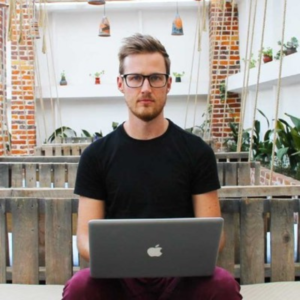
Nick Drewe
At the beginning of the pandemic, we noted that the shut downs resulted in a huge eCommerce spike, and we knew what had to capitalize on the opportunity it presented.
As one of the world’s largest eCommerce platforms devoted to consumer savings online, we wanted to surpass competitors services that average discounts and deals between 10,000-30,000 retailers, and that skew to big, brand-name retailers. No competitor was servicing niche and boutique retailers to the extent we knew we could, so we pushed to expand into that gap in the industry while people were at home scrolling through eCommerce sites.
We executed a multi-month service expansion of brokering deals to over 100,000 brands, and focused on smaller brands offering just as many discounts and promotions as their larger competitors. By delivering those deals, we experienced record traffic spikes and continue to hit traffic milestones of over 3 million visitors a month. A pandemic pivot paid off.
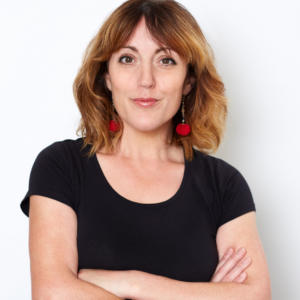
Kate Toon
From a financial perspective, the pandemic meant I had to cancel all my in-person events, including my annual copywriting conference CopyCon. I also lost additional revenue from speaking gigs.
In terms of customers I felt that they needed additional support during this difficult time. So to support this I reduced my top of funnel, new customer marketing and focused on those who were already members of my communities and courses.
Rewarding their loyalty with more attention. I spent more time supporting members with co-working sessions, training and one-on-one coaching-this resulted in a minimal membership number drop, and our members stuck with us.
I also created a new online course (The Sales Page Copywriting Course) and launched twice with no advertising, selling out both times to existing customers. Finally, we created bundles of templates in our copywriting shop and offered existing customers upgrades.
My approach was to stop banging the marketing drum and tooting our horn and instead stay quiet, listening to our customers and helping them with the products, services and support they needed.
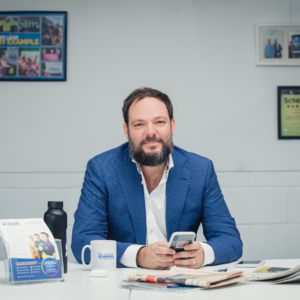
Rune Sovndahl
Sure, businesses will take a long time to recover from what has been happening for two years now. And what the future looks like is not something I am able to predict. 2019 was a great year for FantasticServices.com. And then Covid-19 happened.
So many thoughts crossed my mind when the first lockdown was announced-fear, confusion, uncertainty. I knew the company is about to face difficult times. And I was right-we lost 50% of our bookings in no time, and I was afraid that I might lose my business.
I could lose 10 years of hard work and let go of the people that helped get FantasticServices.com to where it is now. I will tell you what-my childhood dream was always to run my own business.
It all started when I was about 8 years old, and my parents got me my first desk. I remember spending hours organising my pens and stapler, practising and pretending to run my own company, and this brought me so much joy as a child. Later on, through my adult life, I was always looking for the perfect opportunity.
And this is what motivated me to absorb my fears, face the financial hit, get back on track by adapting to the situation and simply just act. I decided to put everything I have into the business.
My focus, at the time, was to retain the 400 fantastic staff members and get ready for whatever comes. We started an online support group to stay in touch and help each other out with whatever we could. Now, I can only say a huge THANK YOU, as those people were working harder than ever! They were the heroes that saved the company.
The spark I saw in their eyes was the one thing that motivated me to keep going. We decided to come up with new ways to sell, book, and optimise our work. With all this came the buzz, as if I was launching a brand-new company. It was amazing! So we thought-what is important during a pandemic? Washing your hands. Hygiene! Sanitisation!
So, we introduced a number of antiviral cleaning services that were carried out with professional equipment and started using certified virucides. What we did is disinfect entire homes and office spaces with the use of a fogging machine that can cover an entire room with microscopic virucidal solution droplets.
We then did our best to popularise the service and make it available for everyone. We also shared our expertise with other cleaning companies to work together towards ending the pandemic.
The next thing we did is launch a franchise grant fund. We knew that many are either losing their jobs or experiencing financial struggles that affect their business. The grand was there to cover the expenses for starting a franchise business. This way, we were able to provide a great employment alternative for anyone that needs to restart their business in a sector of high interest.
Now that we’ve somewhat recovered, we also broadened FantasticServices.com into 20 new areas. Some of them being mobile beauty, pet care, and mobile car services, and further expanded our cleaning, plumbing and gardening services. We live in difficult times. And we need to adapt. I hope everyone has the ability and resources to do so.

Tom Shugg
The team at Meg Languages delivers language programs to more than 50,000 students every week but these lessons typically occur in the classroom with a whole class of students participating in a live lesson at the same time.
With the pandemic came the wholesale transition to learning from home and because of reasons around access to technology it became prohibitive to have students all dial in to a language lesson at the same time and there was a real concern of students without reliable access to internet being at a disadvantage.
As such, the pandemic pushed us to pre-record and digitise our whole curriculum in a way that students could experience our lessons whenever they had reliable access to a computer at home rather than just at the weekly scheduled time.
It was an additional product we had in the pipeline for the longer term but the sheer necessity of being able to provide a quality program during a sustained learning from home period compelled us to expedite this evolution of our program.
With Meg Languages having had 10 years operating in the online learning space we also made an effort to support our clients which are predominately schools in educating them in how best to adapt to this new learning from home model. We did this in the form of providing schools with a “School Continuity Plan” to better support staff with the abrupt changes occurring during the pandemic.

Prav Solanki
The pandemic has given us great opportunities as a digital marketing agency. With the shift to online activities, many businesses have to boost their online presence.
Thus, needing our services more than ever. But this didn’t spare us as well. The pandemic made the digital marketing industry more competitive. We have to develop a strong brand, invest in technology and upskill to remain relevant.
To stand out, we have to rethink our strategy and cater our services to offer flexibility that works for our clients and our business. We hired freelancers to provide exceptional work as needed, saving us overhead costs and real-estate expenses.
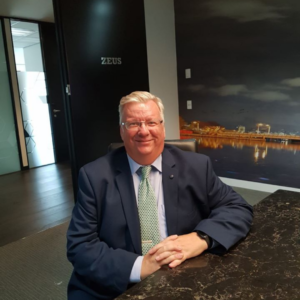
Graham Wynn
The pandemic had a significant negative impact on the recruitment industry. Private recruitment companies are paid only when placements are filled, so consequently, with many companies not recruiting, the income source dried up for many recruitment firms.
Superior People Recruitment restructured their business, to allow staff to work from home, and conduct meetings over Zoom, Skype etc, and in doing so relinquished physical corporate offices, which reduced overheads significantly. As a measure of good faith to all existing clients, those savings were passed on to the clients, by way of a reduction of their standard fees.
This assisted those companies still recruiting, by reducing the expense in doing so. This reduced fee was also offered to potential new clients, to also assist them in recruiting, and has been very well received, to the point that at present, the company is now dealing with more open job vacancies than pre-pandemic, which should see an increase in revenue in 2022, as compared to 2019, the year prior to Covid striking.
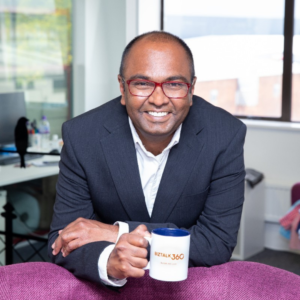
Saravana Kumar
After the pandemic, if there is one thing that employees are concerned about, it is – Safety. We have enabled remote work arrangements for all the associates across the organization. Employees require flexibility at this point of time. Our organization is well equipped to work cohesively with the help of a few collaboration tools.
One of the few tools we use here is Microsoft teams for internal communication, workspace chat, customer calls, demo calls and video conferencing etc. We also use our product- Document360 for knowledge management within the organization. These tools offer internal integrations that enable instant document sharing and responding to queries.
We have initiated organization-wide employee engagement activities to increase the productivity of isolated teams. In 2021, although we didn’t see any new product line, we came up with 60+ productivity updates in our knowledge base product-Document360.
Some of the key features are ticket deflector, workflow, JWT single sign-ons, full portal search etc. Our development team implemented 6+ different extensions and integrations like Salesforce, Drift, Belco to name a few.
The knowledge base has undergone some performance improvements in category types, search and bulk delete. 2021 was all about customer experience for us- focusing on improving the solution for existing customers rather than investing on a new product line. Our goal for 2022 is to ‘deliver more’. We are also working on a new product for the past one year and will be launching it by midyear.

Richard Clews
As the pandemic started, my businesses had to temporarily close. I was frustrated not doing anything, so I opened an online store – which raised $300,000 and is now profitable.
Here’s my story. I was already working with men’s garments. However, I’d never worked with pants and socks exclusively before. While shopping for myself early during the pandemic, I saw there weren’t many sites catering to men’s underwear.
So, knowing men’s brands and wanting to try e-commerce, I opened my current business. Now we’re doing quite well. We moved from my bedroom to an office last year. I also hired my youngest child to work with me full-time, which has been wonderful. Glad I made the pivot to e-commerce!
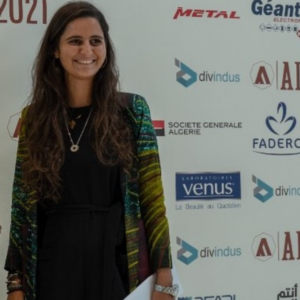
Chiraz Bensemmane
I’m Chiraz Bensemmane, a serial entrepreneur, founder of Pitch World Fast, a business development and consulting company. I created my company in 2015 focused on emerging markets helping companies and authorities to grow.
One of our signature projects has been taking the form of round tables for the ministry of health of Algeria which we were helping benchmark international good practices and with the Algerian authorities then discuss how to apply in Algeria and improve the healthcare system.
With covid-19, these kinds of meetings and events were not possible so we had to pivot, to think differently and see how we can leverage the situation. Part of our long term strategy has always been to replicate the project we were doing in Algeria with the local authorities in other countries, especially in Africa, and were in discussion with authorities in countries such as Tunisia, South Africa, etc… We therefore decided to rethink our round tables and from this, the African webinars were born.
It was a new challenge as, besides the technical & logistical part that we had to learn, we didn’t have a network of African authorities and we know how data, information, and the internet are quite challenging on the continent. Nobody knew us and we are a private company therefore why would african authorities would work with us and show up. We needed to create something of value, something different also from the webinars that already existed.
We therefore decided to make it an exchange platform for the authorities as we had covid and the AfCFTA (African Continental Free Trade Area) as the new normal and reality so that they could learn from each other and for stakeholders know what is really going on on the continent and what can be done, what type of partnership can be created. This new project was launched June 2020 and became then a new service that we offer, as well as our signature project.
Our African Webinars on Healthcare & Economy are now monthly meetings with African authorities and experts to share their experience and discuss together how to improve our healthcare systems and economies in the continent and unavoidable meetings as well the go-to platform for peer to peer exchanges on the continent.
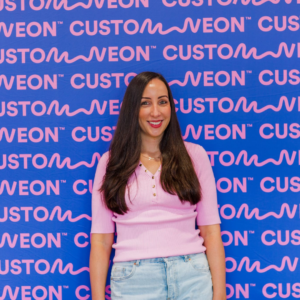
Jess Munday
In 2018 we were experiencing dizzying growth! Custom LED signs were the must have items for weddings and our business was incredibly buoyant. 2019 saw the onset of the pandemic that forced global lock downs, halting all weddings and events, effectively wiping out 60% of our business overnight.
We resisted sitting back and riding the wave. Instead, we decided to hit the problem head-on. We recruited additional team members, ramped up advertising spend and switched focus to corporate and business signage.
We gave away 10 X $500 vouchers to struggling businesses, and used their signage as content for our portfolio. Quickly establishing ourselves as professionals in the business signage sector. We closed the hire arm of our business and redistributed the staff to other departments. It was a risk, increasing marketing spend, but it paid off.
We saw a revenue increase of 163% during April 2020 to May 2021 .This propelled Custom Neon from a 7 figure business to an 8 figure business. Now, in 2022, we are on track to turnover $18 million. Whilst there are no positives to come from the devastation of Covid-19, the pandemic provided us with a catalyst for differentiation and growth.


